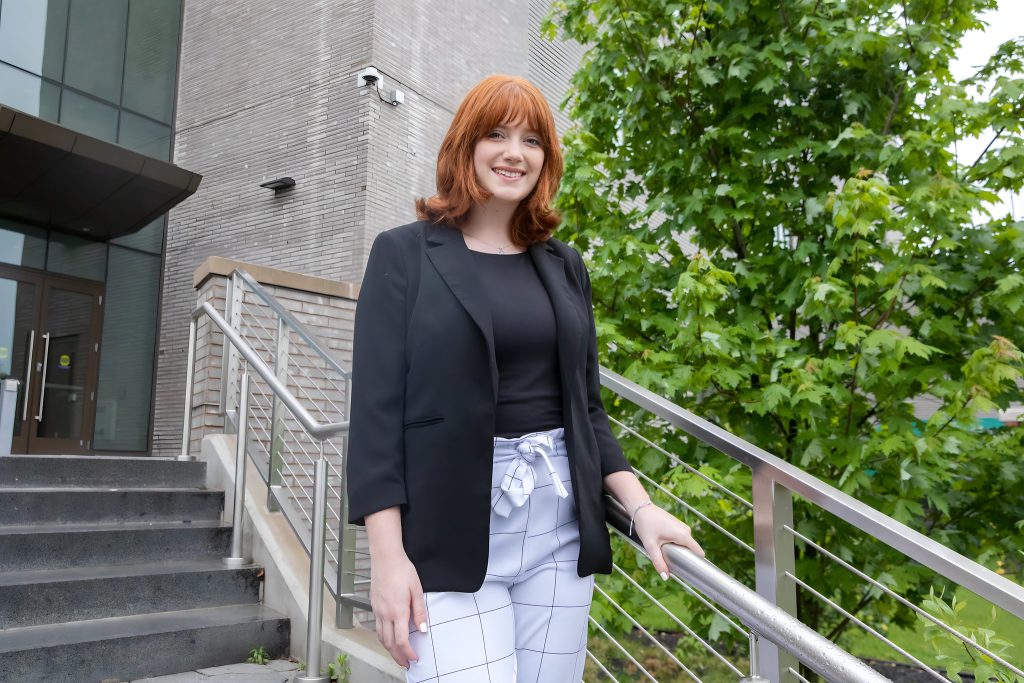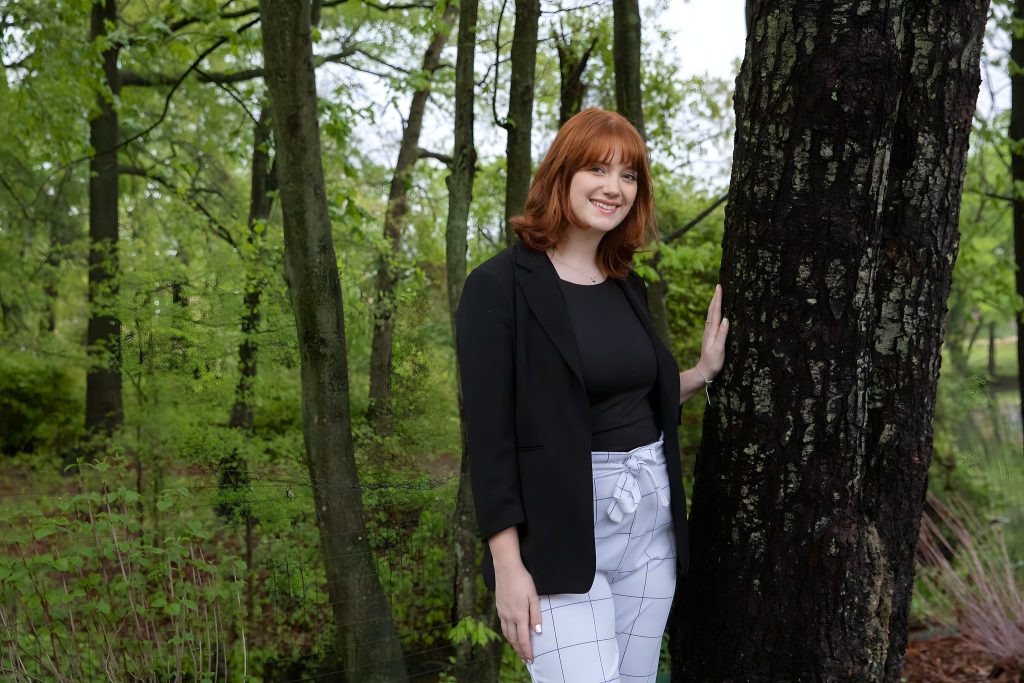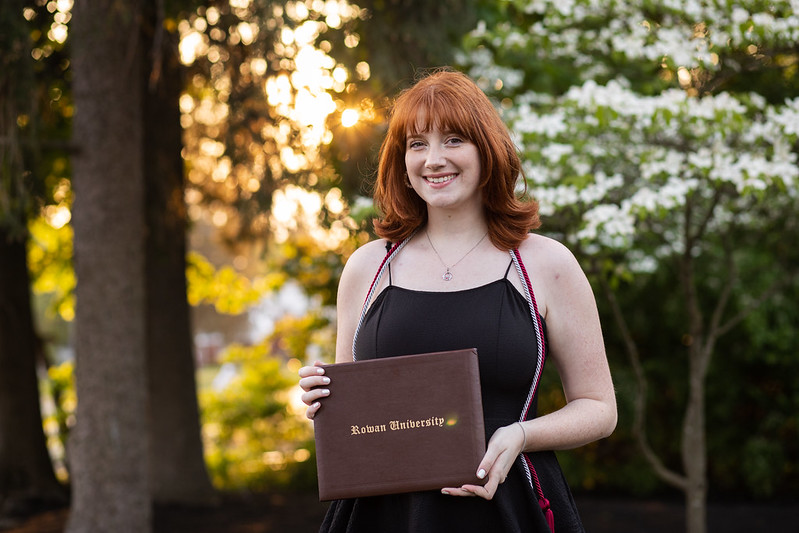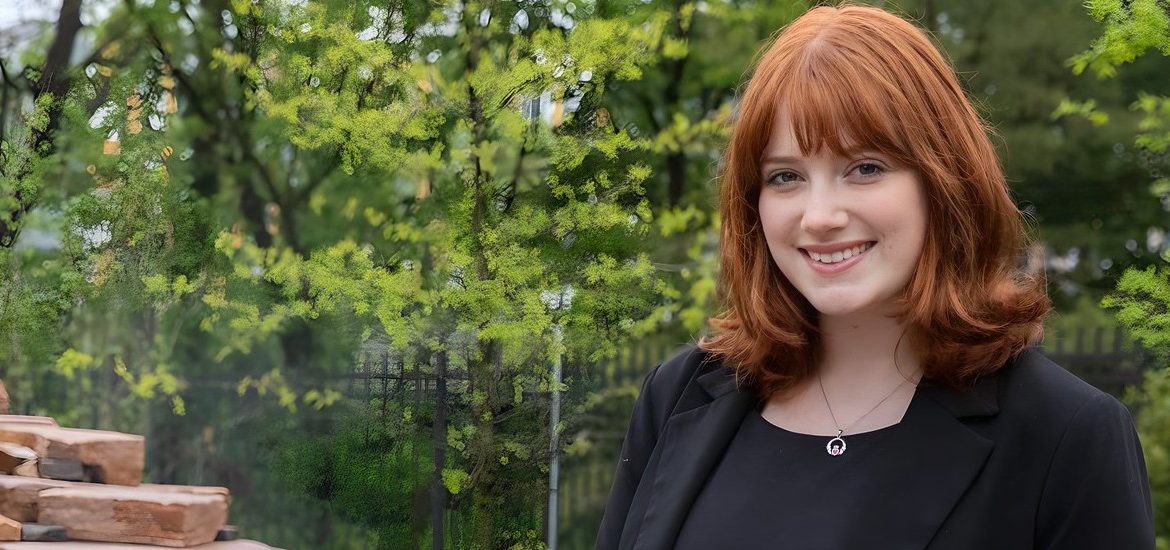Today we feature Master in Teaching graduate student Madelyn Olszewski from Washington Township, NJ (Gloucester County) who recently completed her studies. Madelyn pursued her master’s degree immediately following her undergraduate studies.
What’s been the defining points of your academic career here, anything at all that stands out to you in particular?
Well, my academics, like my academic part of school, has always been important, but I feel that when you’re in education, it’s part of learning from experience and learning to know, meet people and understand how to teach. While at community college, and at Rowan, I’ve learned a lot from my professors. And I’ve also learned a lot from the people around me. And I feel like that has turned me into the person that I am, the type of teacher that I want to be today.

How did you know that Rowan was going to be your home?
I did a lot of research. I thought that it was best financially to start out at community college Rowan College at South Jersey, RCSJ. And I knew that RCSJ classes and their credits transferred easily to Rowan for the program that I really wanted to be in. So while I started out at RCSJ, I soon transferred over to Rowan, where I finished my three years. The classes have gotten progressively more difficult, but also the content itself; this type of scaffolding had made me realize what Rowan was preparing me for mentally as well as to get me primed for my own academic goals.
How did you come to find the group of people that you surround yourself with at Rowan? Was it through social interactions, friends who already had or what was it that made you feel more comfortable here?
I moved off campus this past year. So that would be my, technically my senior year, of undergrad. I moved off campus and I actually wasn’t very familiar with some of the people that I met, but they actually became some of my closest friends and people that have really helped me become the person that I am and I’m really grateful for that. Because as classes started to go back on campus after the pandemic, I met more people; I actually got to have a better relationship with my professors, as well as friends.
What were some of the struggles that you had faced here at Rowan? Beyond that, how did it affect your major?
So it was really difficult because I did feel kind of left behind. Mainly, there are students here at Rowan who have been a part of the community for all four years of their higher education experience. They had more than just experience, it was like peeking into a whole new world that I was not necessarily a part of yet. Especially in the education field, I felt that many of my peers and classmates started forming relationships, whether that be with each other or even schools and school districts a lot sooner than I did. Because I was just starting out transferring into such a bigger environment, it did leave me with some uncertainty, but I’m glad I persevered through it all. I’ve met and made so many different meaningful connections with people here and I wouldn’t change a thing.

What’s your situation like now? Especially now that you’ve been enrolled in the graduate program for education, how is this been different in comparison to your undergrad?
This graduate school year has actually been very eye opening for me because I am surrounded by people who are going through the same experiences and the same difficulties that I’m going through. With some of the classes that I’ve been taking, it has been kind of a relief off of my chest to be able to talk to people who are student teaching, or talk to professors who are specifically there for the clinical experience.
Speaking of which, you’re at your career right now. You’re oriented toward education, specifically specializing in social studies. As a social studies teacher, how did you come to the realization that teaching could be professionally you could find yourself doing?
I guess it’s kind of something that I’ve always known. I really enjoy helping people, I enjoy seeing people with that reaction they get; it’s like being able to see a light in their eyes when they realize “Oh I got it, I figured it out, thank you so much!” It’s a really self-fulfilling feeling that makes you just feel especially grateful for what you do. My family comes from a long line of teachers who range from elementary education to the college level. I’d be lying if I said my own environment never played an influence. I got into social studies specifically because of how my dad and I would bond over history together. We would go to museums, watch The History Channel together, and just really connect. For me, it was kind of like putting two and two together; I really enjoy history and I see how happy my own family is as teachers, why not?
What’s your average day of your internship, like right now?
So the first semester I was at clinical practice for three days a week. The other two days of the week that I wasn’t in student teaching, I was taking classes at Rowan; so, it was a very booked schedule. On top of that, I did also have a job as well to support myself. So during those three days, I would observe and I would assist my cooperating teacher as much as I could. I gathered information about the students and about how my cooperating teacher runs her class, about the community as well as the high school community itself. So it was very difficult to first start dipping my toes in the water, but the more I was there, the more I felt comfortable, the more I experienced and learned. As I went into my second semester, I was there five days a week. I was there all day and started to take over all of my cooperating teacher’s classes. I had less time for planning but I was teaching fully there.
Do you feel as if you’ve changed a bit throughout the internship? Have you had to make any adaptations with how you handle your classroom?
Especially as a female teacher in a high school, you definitely have to have to stand your ground, you have to make sure that students know that you are a person of authority. Sometimes, because of how close in age I am with some of the students I come off as similar to them. As a teacher that’s fine to have those moments but it’s especially important to be able to make that distinction that I am an educator first. High school will always be what it is, having students dismiss you as just a student teacher, write you off, or refuse to get off their phone. But when I first started I was very nice, I was trying to make everything sweet and try to build rapport with my students. As I continued along and kept those bonds with the students throughout the year, I steadily also became more firm with the way that I handle situations as well as with classroom management because, again, as a female teacher you really need to stress to your students that you’re a person of authority.
What’s been the most challenging aspect of your clinical internship so far?
Finding the sweet spot for a proper work-life balance. We still had classes at Rowan on top of teaching and I do also have a job on top of that just because I need to be able to support myself through the internship. I’m constantly trying to find a working balance between all of these things and make sure that I have time for lesson plans, work, school work, but also my own personal life as well. It’s been challenging, but I’m working through it.

How has Rowan and its courses prepared you for your career?
In the fall semester, I took classes that were more specialized in my content area and how to teach the content area. In the fall semester, I also took other classes on how to teach literacy within my content area. All of that was preparing me on how to lesson plan on how to have meaningful discussions with my students and peers and it really showed in this past spring semester as I dove into the meat and potatoes of student teaching. With the class that I took this spring, it’s different every week. We talk about classroom management, we talk about discussions, how to deal with things, how to deal with burnouts, how to kind of prepare myself as a teacher, while also surrounding myself with clinical students who are in other content areas as well.
My first semester was specifically focalized on just social studies students but this time around I was surrounded by ELA majors. I’m around theatre, undergrad, social studies, clinical students and it gives me a lot of perspective. I’m starting to get to know of the different viewpoints that people have as well as learning of their own experience.
How has your experience been so far with being around all of these different subject oriented teachers? Have they given you different perspectives?
It’s definitely given me a lot of intuitive perspective. I get a lot of information from peers around me from different grade levels. For myself, I’m specifically teaching sophomores in high school. I also teach an elective, which is different grades as well; but, I don’t really have that middle school aspect as much. So to hear from a clinical student who is teaching in a middle school, or teaching freshmen or teaching specifically seniors, I hear about their experiences with those different age groups, and how they do and how they teach and what different activities or different learning databases they use. So those things they do help me in the long run.
What do you hope to accomplish in the education field? Is there anybody you hope to model yourself after?
There are many different teachers that I have met throughout my clinical experience that I would model myself after, my CT in particular, I think is a wonderful teacher. I think that the way that she cares for her students, and makes sure that every student feels comfortable in their learning environment is extremely admirable and something I want to incorporate into my own teaching methods. She’s a woman teacher in social studies and 100% cares for every single student that walks into her classroom. I hope to do the same with my students eventually.
Like what you see?
Story by: Lucas Taylor, master in teaching graduate ’23



